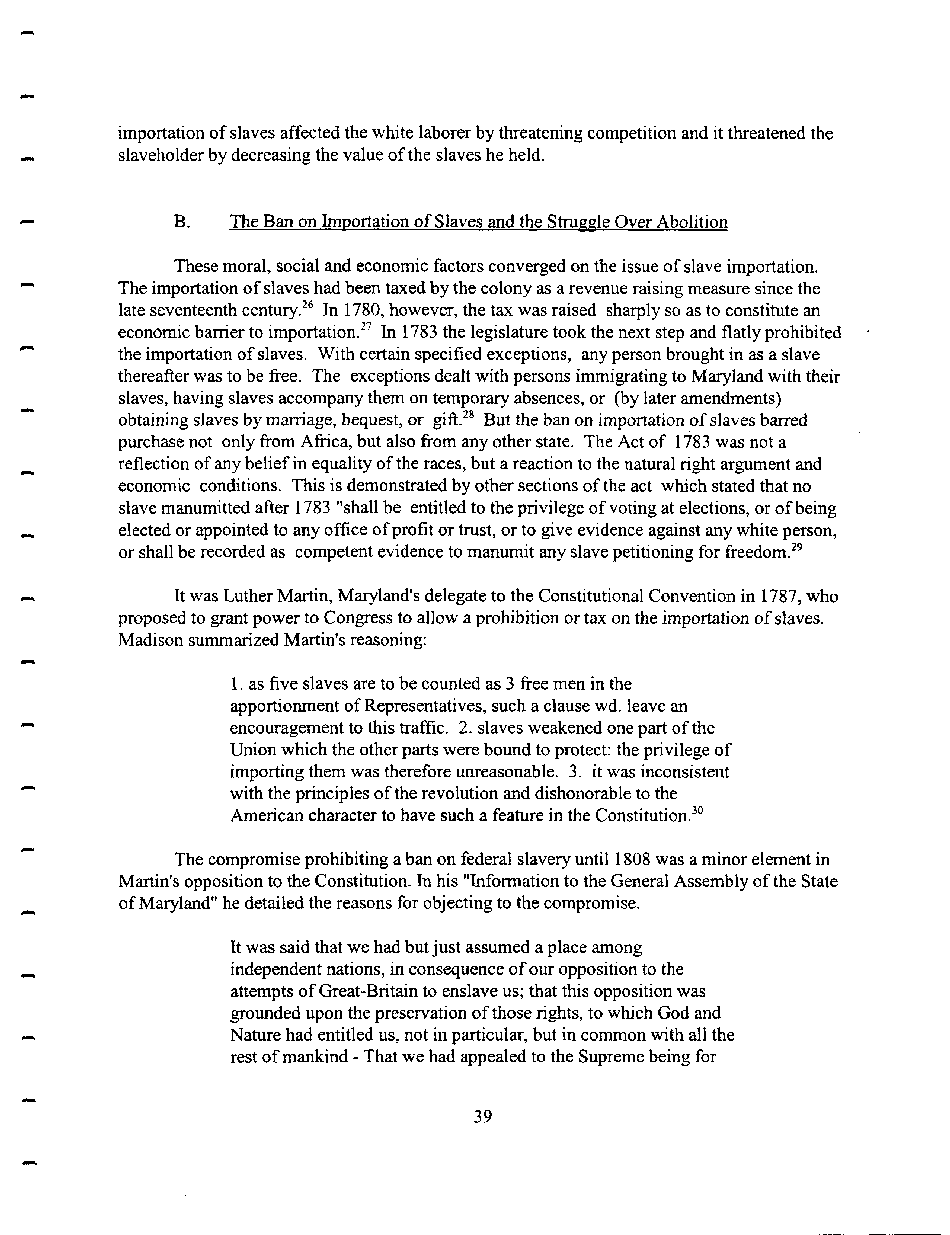|
importation of slaves affected the white laborer by threatening competition and it threatened the
slaveholder by decreasing the value of the slaves he held.
B. The Ban on Importation of Slaves and the Struggle Over Abolition
These moral, social and economic factors converged on the issue of slave importation.
The importation of slaves had been taxed by the colony as a revenue raising measure since the
late seventeenth century.26 In 1780, however, the tax was raised sharply so as to constitute an
economic barrier to importation.27 In 1783 the legislature took the next step and flatly prohibited
the importation of slaves. With certain specified exceptions, any person brought in as a slave
thereafter was to be free. The exceptions dealt with persons immigrating to Maryland with their
slaves, having slaves accompany them on temporary absences, or (by later amendments)
obtaining slaves by marriage, bequest, or gift.28 But the ban on importation of slaves barred
purchase not only from Africa, but also from any other state. The Act of 1783 was not a
reflection of any belief in equality of the races, but a reaction to the natural right argument and
economic conditions. This is demonstrated by other sections of the act which stated that no
slave manumitted after 1783 "shall be entitled to the privilege of voting at elections, or of being
elected or appointed to any office of profit or trust, or to give evidence against any white person,
or shall be recorded as competent evidence to manumit any slave petitioning for freedom.29
It was Luther Martin, Maryland's delegate to the Constitutional Convention in 1787, who
proposed to grant power to Congress to allow a prohibition or tax on the importation of slaves.
Madison summarized Martin's reasoning:
1. as five slaves are to be counted as 3 free men in the
apportionment of Representatives, such a clause wd. leave an
encouragement to this traffic. 2. slaves weakened one part of the
Union which the other parts were bound to protect: the privilege of
importing them was therefore unreasonable. 3. it was inconsistent
with the principles of the revolution and dishonorable to the
American character to have such a feature in the Constitution.30
The compromise prohibiting a ban on federal slavery until 1808 was a minor element in
Martin's opposition to the Constitution. In his "Information to the General Assembly of the State
of Maryland" he detailed the reasons for objecting to the compromise.
It was said that we had but just assumed a place among
independent nations, in consequence of our opposition to the
attempts of Great-Britain to enslave us; that this opposition was
grounded upon the preservation of those rights, to which God and
Nature had entitled us, not in particular, but in common with all the
rest of mankind - That we had appealed to the Supreme being for
39
�
|

